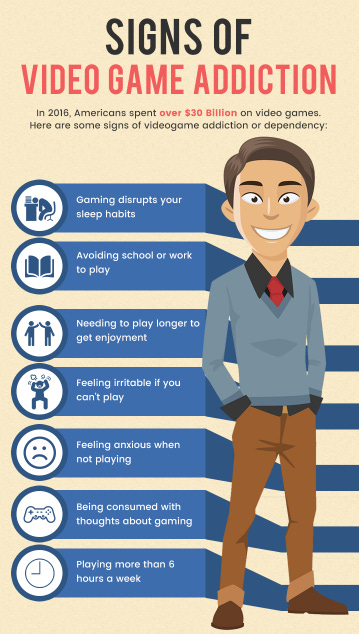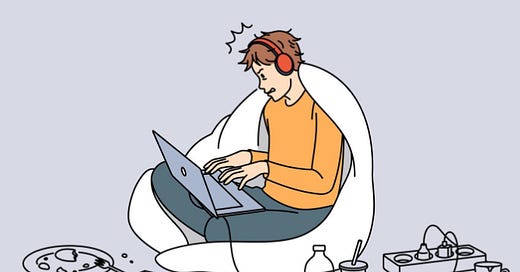Additional Symptoms for Internet Gaming Disorder
The American Psychiatric Association is on the right track, but my expert opinion on gaming addiction can assist the field

The fifth edition of the Diagnostic and Statistic Manual (DSM-5), released in 2013, is the first edition of this manual to recognize gaming addicts as existing. Perhaps we are a ways off from people who suffer from gaming addiction being able to stand up before their peers and announce they are a gameaholic, but having the issue officially acknowledged is a step in the right direction. The disorder, ever so poignantly referred to as Internet Gaming Disorder, is described as including these symptoms:
Preoccupation with gaming
Withdrawal symptoms when gaming is taken away or not possible (sadness, anxiety, irritability)
Tolerance, the need to spend more time gaming to satisfy the urge
Inability to reduce playing, unsuccessful attempts to quit gaming
Giving up other activities, loss of interest in previously enjoyed activities due to gaming
Continuing to game despite problems
Deceiving family members or others about the amount of time spent on gaming
The use of gaming to relieve negative moods, such as guilt or hopelessness
Risk, having jeopardized or lost a job or relationship due to gaming
The manual states that further research and debate is necessary in outlining this disorder. It is my intention here to help clarify some issues around this debate, by suggesting some additional symptoms to be considered (which may or may not be drawn from my personal life experience):
Zero tolerance for any activity that is not gaming
Spending less than an average of 25 minutes per day job hunting ,while unemployed, and seeking reward for this amount of job hunting with four to five hours of gaming.
Having no social media presence whatsoever, because the algorithmically driven content of petty likes, ragebait political tweets, clickbait fake news, and narcissistic influencers has no appeal over the rewards of Elo or in-game achievements.
Paying more than $350 for in-game currency to buy special food and outfits for digital pets.
Remaining awake for twenty hours as a time and never maintaining a consistent sleep schedule, because sleep is valued as much less important than gaming.
Spending six hours at work looking through a detailed list of League of Legends items, in an attempt to theory-craft a build that features an item almost no one ever uses.
Arranging hangout time with friends solely because they have a decent gaming rig and/or access to a particular game of choice.
Taking up weight lifting and running, only because certain studies suggest that such activities help gamers improve performance.
Making an earnest commitments to “get into Diamond league or die trying.”
Owning a gaming rig with total a retail value that is more than three times the amount of monthly income.
Experiencing a feeling of crisis and utter hopelessness when having spent hours gaming and being unable to gain ranking or ladder points.
Having no interaction with others during an eight-hour gaming session, other than to tell teammates in the chat what utterly pathetic noobs they are.
Uninstalling any particular game in an effort to resist playing it ever again, then reinstalling said game a few days later.
Downloading a Pokémon emulator in an attempt to cut down on competitive gaming, then going on a twelve-hour binge to beat the game and planning an endgame lineup.
Falling asleep while gaming. When waking, searching for ways to remain alert rather than going to sleep.




There is most certainly a 12 step program for people who have a gaming addiction. I'm not sure if they use the term "gameaholic" or not but I'm sure they have some term.
Yes there is a solution! https://recovery.org/support-groups/online-gamers/